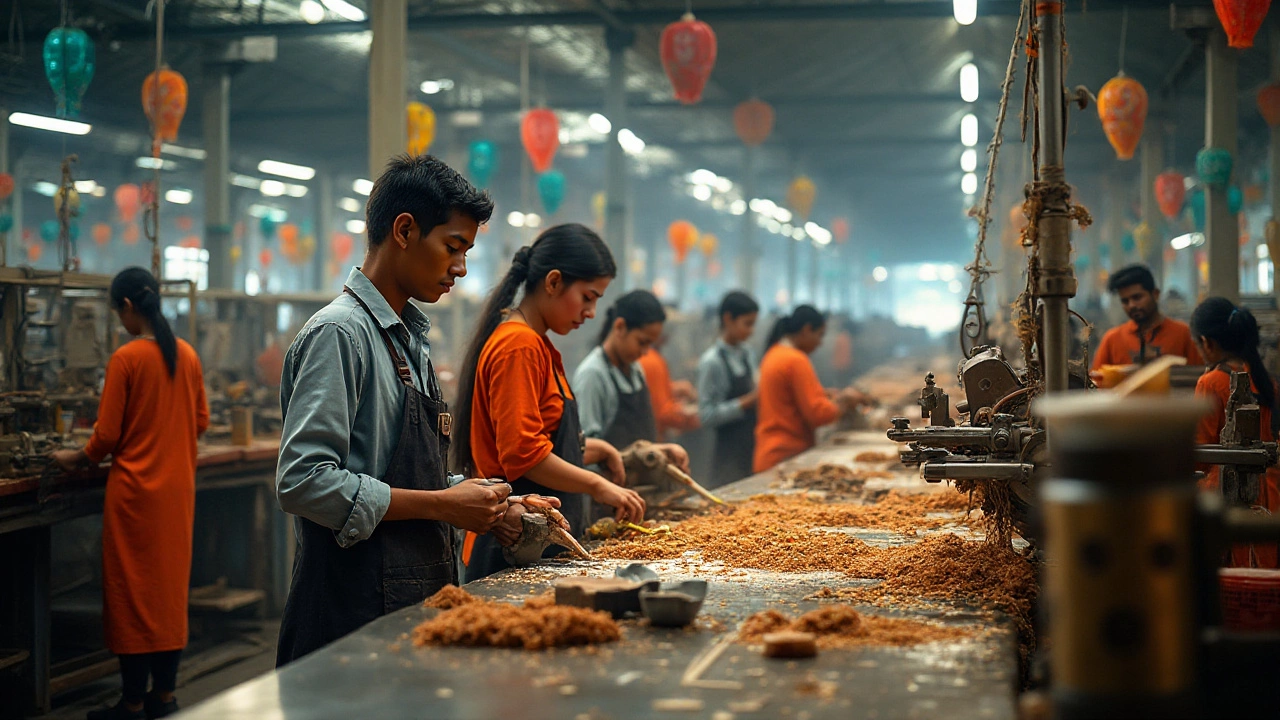Local Manufacturing: Why It Matters for Indian Businesses
Ever wondered why more companies are saying "Made in India" with pride? It’s not just a label – producing locally cuts costs, speeds up delivery, and creates jobs. When you keep the whole supply chain close to home, you avoid long shipping delays and unpredictable customs fees. That means your product reaches customers faster and you keep more of the margin.
For Indian firms, the biggest win is control. You can walk the factory floor, check the quality, and tweak designs on the spot. No need to wait weeks for a partner overseas to make a change. This hands‑on approach also builds trust with buyers who care about where their products are made.
Key Advantages of Producing Locally
Lower transportation costs – Shipping heavy items across oceans adds up fast. By manufacturing nearby, you save on freight, fuel, and insurance. Those savings can be passed on to customers or reinvested in R&D.
Faster time‑to‑market – When a factory sits next to your headquarters, you can prototype, test, and launch in weeks instead of months. Quick turnarounds are a competitive edge, especially in fast‑moving sectors like electronics or consumer goods.
Improved quality control – Direct supervision means defects are caught early. You can train staff to follow your standards and make sure every unit meets the same specs, reducing returns and warranty claims.
Job creation and brand trust – Hiring locally boosts the community and builds goodwill. Customers increasingly favor brands that support Indian workers, which can translate into stronger loyalty.
Regulatory benefits – The Indian government offers incentives like tax breaks, subsidies, and easy credit for domestic manufacturers. Tapping these programs can lower your operating costs significantly.
How SkyWings Elevation Solutions Leads the Way
SkyWings Elevation Solutions is a perfect example of a company that turned local manufacturing into a growth engine. By designing and building elevators in India, they keep production costs low while meeting international safety standards. Their factories use modern tooling, yet they stay flexible enough to adapt designs for each client.
What sets SkyWings apart is their focus on rapid response. Need a custom lift system for a new office building? Their engineering team can prototype on the shop floor and have a finished unit ready in weeks, not months. This speed helps developers stay on schedule and avoid costly delays.
SkyWings also invests in local talent. They run apprenticeship programs that turn fresh graduates into skilled technicians. The result is a workforce that knows the brand inside out and can maintain elevators for years, boosting customer confidence.
If you’re thinking about shifting production to India, start by mapping out your current supply chain. Identify the steps that add the most cost or delay and see if they can be moved to a local plant. Talk to manufacturers like SkyWings who already have the infrastructure and know the local regulations.
In short, local manufacturing isn’t just a buzzword. It’s a practical strategy that cuts expenses, speeds up delivery, improves quality, and builds a stronger brand. With the right partner and a clear plan, your business can reap the same benefits that SkyWings enjoys every day.

